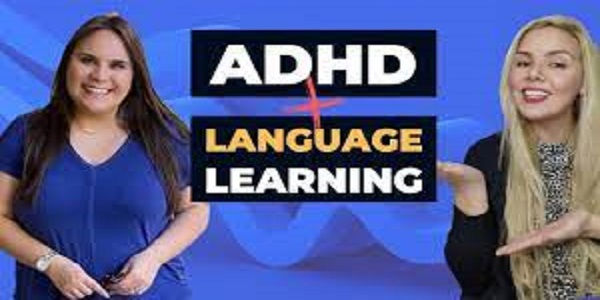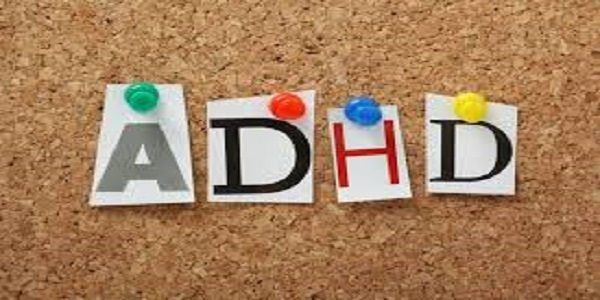If you have ADHD (Attention-Deficit/Hyperactivity Disorder), you know how challenging it can be to stay focused and engaged, especially when it comes to learning a new language. However, with the right strategies and tools, language learning with ADHD is not only possible but also enjoyable and rewarding.
In this article, we'll explore some effective tips and techniques to help you improve your language skills, boost your confidence, and achieve your goals.
C'mon Let's Give It A Try, Learn A New Language! Click Here

Introduction: The Challenge of Language Learning with ADHD
Language learning is a complex and demanding task that requires a lot of mental effort and concentration. For individuals with ADHD, this can be particularly challenging, as they may struggle with staying focused, avoiding distractions, and managing their time effectively.
Furthermore, the traditional classroom setting may not be conducive to their learning style, as it can be too structured and rigid, lacking the flexibility and creativity that many people with ADHD thrive on.
However, the good news is that there are many ways to adapt language learning to the unique needs and strengths of individuals with ADHD. By understanding your learning style, leveraging your strengths, and using the right tools and strategies, you can overcome the obstacles and achieve your language goals. Let's dive into some of the most effective tips and techniques.
Finding Your Learning Style
The first step in successful language learning with ADHD is to understand your learning style. Everyone has a unique way of processing information and retaining knowledge, and ADHD can affect this process in different ways. Some people with ADHD may be visual learners, while others may be auditory or kinesthetic learners. Some may prefer to learn in a structured and organized way, while others may need more flexibility and creativity.
To find your learning style, try different approaches and see what works best for you. Experiment with different methods of studying, such as flashcards, audio recordings, videos, games, or conversation practice. Take note of what helps you stay engaged and focused, what triggers your distractions, and what improves your retention and recall.
Creating a Supportive Environment
Another key aspect of successful language learning with ADHD is to create a supportive environment that minimizes distractions and maximizes focus. This can include both physical and mental elements, such as:
A quiet and organized study space:
Choose a place where you feel comfortable and focused, free from clutter and distractions. This could be a dedicated room, a library, a coffee shop, or a park. Make sure you have all the materials you need, such as textbooks, notes, pens, or a laptop, and eliminate any potential distractions, such as noise, phone notifications, or social media.
A structured and realistic schedule:
Plan your study sessions in advance, and break them down into manageable chunks. Use a timer or an app to help you stay on track, and take breaks every 25-30 minutes to refresh your brain. Be realistic about your goals and progress, and celebrate your achievements along the way.
Positive affirmations and motivation:
ADHD can sometimes lead to negative self-talk and low self-esteem, which can hinder your language learning progress. To counteract this, practice positive affirmations and motivation techniques, such as visualization, gratitude, or mindfulness. Remind yourself of your strengths and progress, and focus on the joy and curiosity of learning a new language.
Using Technology to Your Advantage
Technology can be a powerful ally in language learning with ADHD, as it offers a wide range of tools and resources to support your needs and preferences. Here are some examples:
Language learning apps:
There are numerous apps that can help you practice and improve your language skills. These apps usually offer gamified and interactive lessons, and adaptive exercises.
Audio and video resources:
Listening to native speakers or watching authentic videos can be a great way to improve your pronunciation, comprehension, and cultural awareness. You can use platforms such as YouTube, podcasts, or online radio stations to access a wide range of audio and video content in your target language.
Study aids and tools:
There are many tools that can help you organize, annotate, and review your study materials, such as flashcard apps, note-taking apps, or online dictionaries. These tools can also provide additional features, such as speech recognition, translation, or pronunciation feedback.
Productivity apps and extensions:
To help you stay focused and productive, you can use apps and browser extensions that block distracting websites, track your time, or create to-do lists. Some popular examples include Forest, StayFocusd, or Todoist.
Stay Focused and Engaged With A Tutor! Learn More. Start Today!

Tailoring Your Approach to Your ADHD Type
ADHD is not a one-size-fits-all condition, and there are different types and subtypes that can affect your language learning in unique ways. Some common ADHD types include:
Inattentive type:
This type is characterized by difficulties in focusing, organizing, and following instructions. People with this type may struggle with paying attention to language nuances, remembering grammar rules, or completing homework assignments.
Hyperactive-impulsive type:
This type is characterized by restlessness, impulsivity, and low tolerance for boredom. People with this type may benefit from more dynamic and interactive language learning activities, such as role-playing, games, or debates.
Combined type:
This type combines the features of inattentive and hyperactive-impulsive types, and may present additional challenges, such as mood swings, anxiety, or sensory sensitivity.
To tailor your approach to your ADHD type, it's important to seek professional advice and guidance from a doctor, therapist, or educational specialist. They can help you identify your specific strengths and weaknesses, provide you with coping strategies, and recommend appropriate accommodations or medication if necessary.
Do Those With ADHD Have Stronger Language Skills?
The question of whether people with ADHD are better at languages is a complex and controversial one. On the one hand, some research suggests that individuals with ADHD may have certain cognitive advantages when it comes to language learning.
For example, they may have enhanced working memory, which can help them retain new vocabulary and grammar rules more easily. Additionally, people with ADHD tend to be more creative and spontaneous in their thinking, which can be beneficial when it comes to expressing oneself in a foreign language.
On the other hand, there are also many challenges associated with ADHD that can make language learning more difficult. People with ADHD often struggle with organization, focus, and attention to detail, which are all critical skills for mastering a new language. They may also struggle with self-regulation, which can make it difficult to set and achieve language learning goals.
Ultimately, whether or not people with ADHD are better at languages depends on a variety of individual factors, including the severity of their ADHD symptoms, their learning style, and their motivation and dedication to the learning process.
While some people with ADHD may excel at language learning, others may find it more challenging. The key is to understand your unique strengths and weaknesses and tailor your approach to language learning accordingly.
With A Coach Language Learning Can Be A Success! Click Here

How Can Someone With ADHD Learn Japanese?
Learning Japanese with ADHD may seem like a daunting task, but with the right mindset and approach, it's absolutely achievable. The key is to understand your unique learning style and preferences, and to find strategies and tools that work for you.
One effective approach for learning Japanese with ADHD is to break down the learning process into manageable chunks. This could mean setting small, achievable goals for yourself each day, such as learning five new vocabulary words or practicing a specific grammar rule. By focusing on small, incremental progress, you can build momentum and stay motivated throughout the learning process.
Another helpful strategy is to create a structured learning environment that minimizes distractions and maximizes focus. This could involve using noise-cancelling headphones, turning off your phone, or finding a quiet study space where you can concentrate without interruptions.
You may also find it helpful to incorporate visual aids and hands-on activities into your learning, such as flashcards, videos, or role-playing exercises. Above all, it's important to stay motivated and committed to your language learning goals.
Learning a new language is a challenging and rewarding endeavor, and it requires consistent effort and dedication. By staying positive, seeking support when needed, and celebrating your successes along the way, you can become a confident and proficient speaker of Japanese, and open up new opportunities and experiences for yourself. So go ahead and take the first step on your language learning journey with ADHD – it's a decision you won't regret.
Language Learning with ADHD: FAQs
Q: Is it possible to learn a new language with ADHD?
A: Yes, absolutely. Although language learning with ADHD may present some challenges, it's definitely possible to succeed with the right strategies and tools.
Q: What are some common challenges that people with ADHD face when learning a new language?
A: Some common challenges include staying focused, managing distractions, organizing information, retaining knowledge, and completing assignments.
Q: What are some effective strategies for language learning with ADHD?
A: Some effective strategies include finding your learning style, creating a supportive environment, using technology to your advantage, and tailoring your approach to your ADHD type.
Q: Can medication help with language learning with ADHD?
A: Medication can help some individuals with ADHD manage their symptoms, such as inattention or hyperactivity, which can in turn improve their language learning performance. However, medication is not a one-size-fits-all solution and should be prescribed and monitored by a healthcare professional.
Q: How long does it take to learn a new language with ADHD?
A: The time it takes to learn a new language with ADHD can vary widely depending on factors such as your previous language experience, your learning style, your motivation and commitment, and the difficulty level of the language. However, with consistent and focused effort, you can expect to make progress and achieve your goals over time.
Q: What are some fun and creative language learning activities that can benefit individuals with ADHD?
A: Some fun and creative activities include watching movies or TV shows in the target language, listening to music or podcasts, playing language learning games, attending language exchange events, or creating your own language learning content, such as videos or blog posts.
Conclusion
Language learning with ADHD can be a rewarding and enriching experience if you approach it with the right mindset and tools. While ADHD can present some challenges to language learning, it doesn't have to be a barrier to success.
By understanding your ADHD type, finding your learning style, creating a supportive environment, using technology to your advantage, and seeking professional guidance, you can overcome obstacles and achieve your language learning goals.
Remember that language learning is a process, and it's okay to make mistakes and learn at your own pace. Be kind to yourself, stay motivated, and celebrate your progress along the way. With consistent effort and dedication, you can become a confident and proficient speaker of your target language, and open up new opportunities and experiences for yourself.
So go ahead and embrace the challenge of language learning with ADHD. It may not always be easy, but it will definitely be worth it.
010101.jpg)
Comments